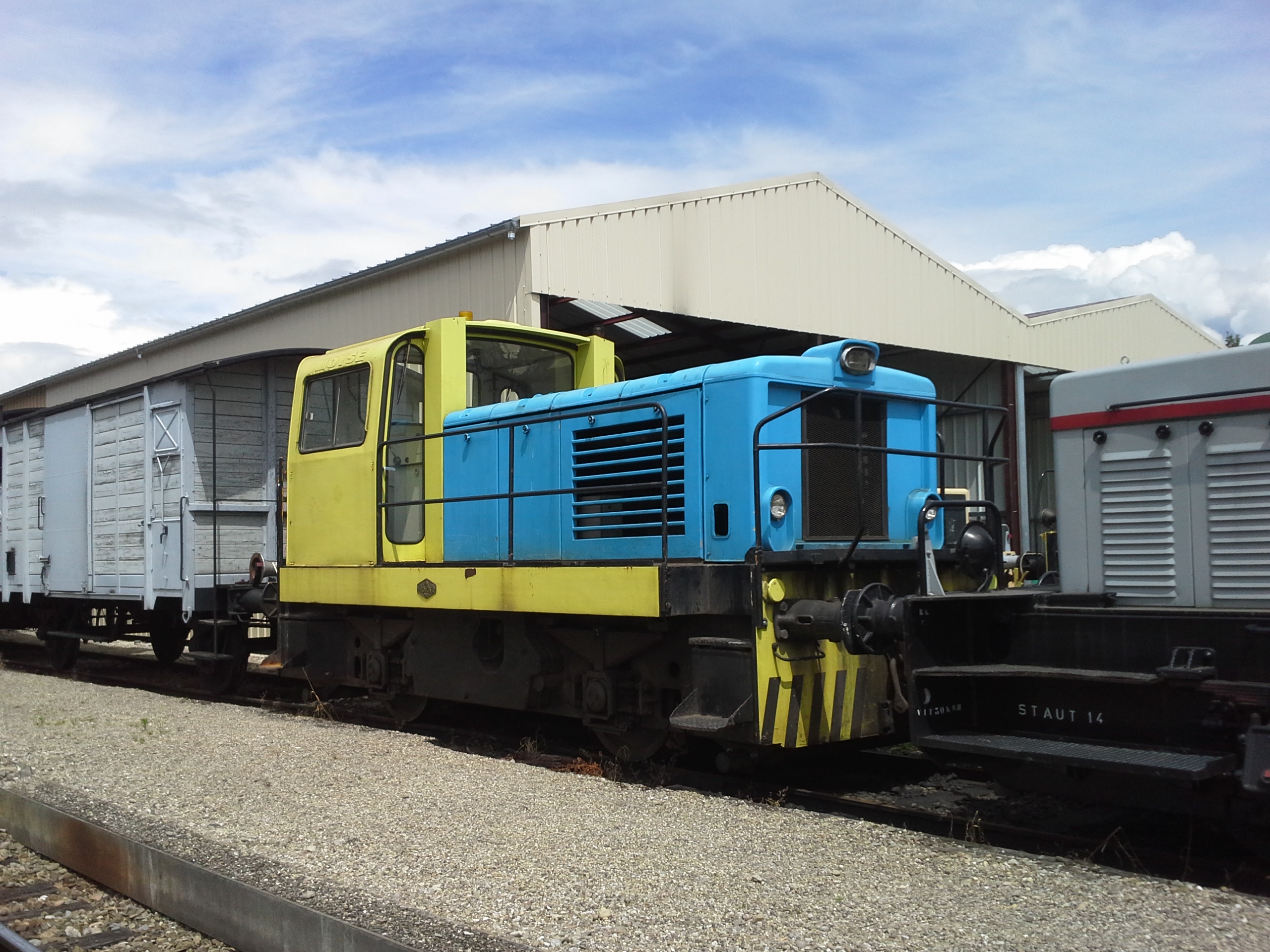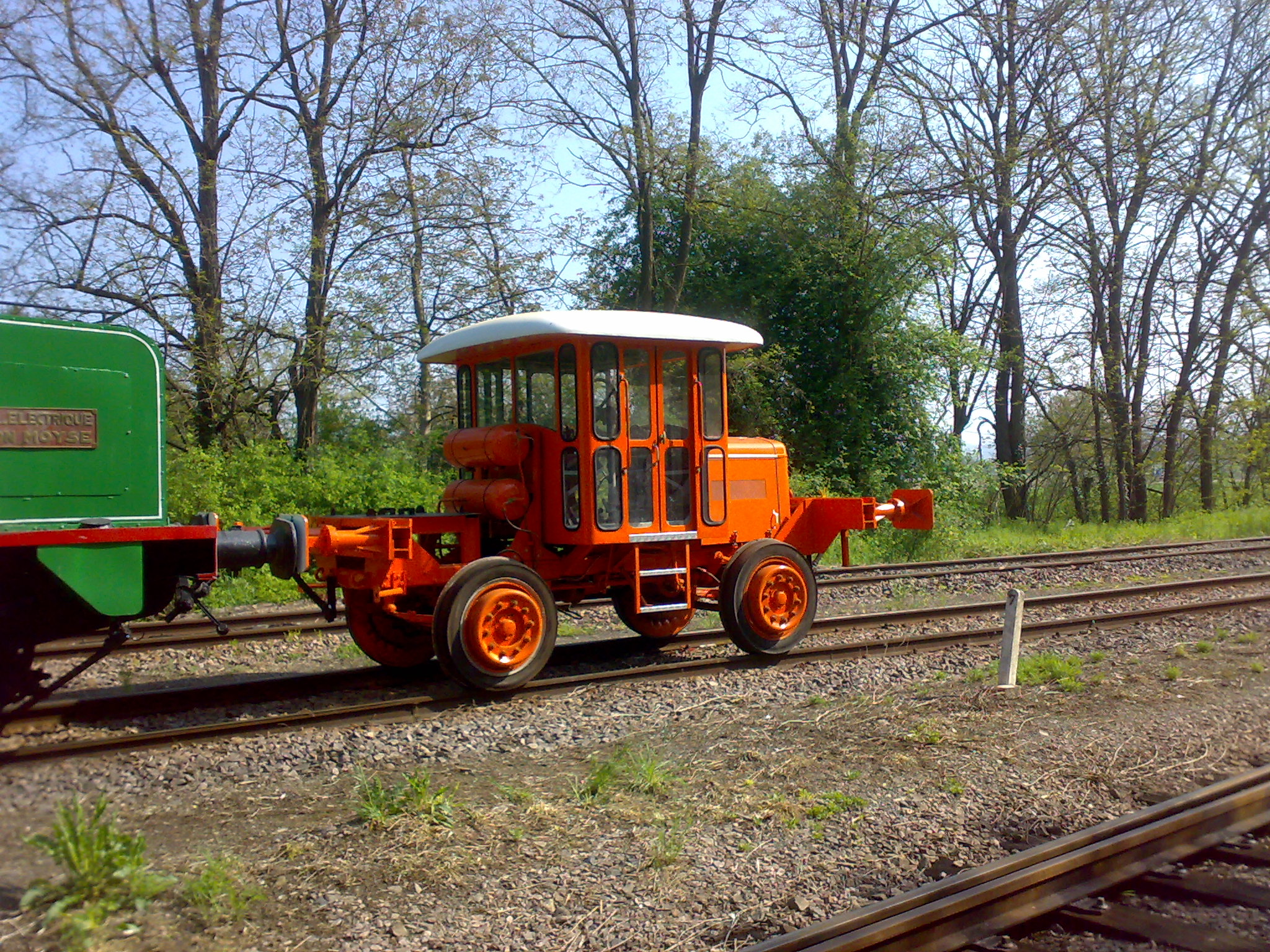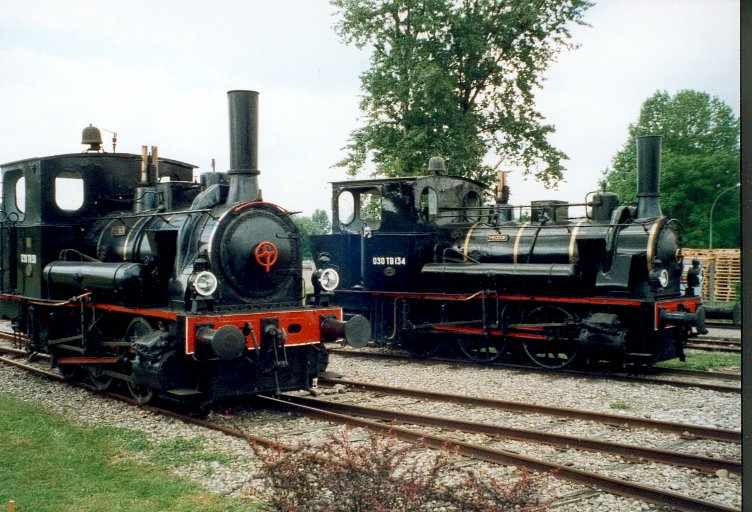Introduction
People often think that the interest
of the public is only for steamlocomotives. These would be what
everyone who comes to us dreams of.
Perhaps it is the case (who knows!)
but in fact the last
steamlocomotives which were operated in France, Germany, GB or USA were
scrapped in the mid of the 70's! That's to say: the
number of people who know them when they were operated in commercial
service is declining fast.
Only what is written in books, burnt on DVD
and seen in museums will be known about these machines and
only from the interested people, that's to say: not really the
general public!.
No more nostalgia in the eyes of the
(young) visitor because he has never known the steam era. Curiosity,
amusement ("how could they use this kind of noisy, weak and polluting
transportation mode?"), compassion ("people were really traveling
slowly in this time") or for some of them perhaps (hopefully) the
wonder at these machines which belong to the heritage of their country!
We furthermore should never forget
that
nostalgia exists mostly for the time that people knew when
they were young. For more and more people, this time is the transition
time between steam and diesel locomotives, in the beginning 70's.
Machines they saw in this time were green diesels (French State Railway
common color) with central cab and with cloud of smoke but only during
acceleration!
For these visitors, the CFTR has a
lot
of different locomotives and the diversity is a must. Just
click
on the picture of each locomotive to get a short presentation of it!
 This Baldwin locomotive
N°62029 from type DRS
6-4-660 was the
property of a
founding member until it has been bought by the association in 2020.
Alternating with the V22, it pulls the train
(including the steam locomotive) from the depot to the station before
visitors are boarding. It is necessary to
the turning in
Sans-soucis, the locality where trench tourists get off the train and
german tourists the boat.
This Baldwin locomotive
N°62029 from type DRS
6-4-660 was the
property of a
founding member until it has been bought by the association in 2020.
Alternating with the V22, it pulls the train
(including the steam locomotive) from the depot to the station before
visitors are boarding. It is necessary to
the turning in
Sans-soucis, the locality where trench tourists get off the train and
german tourists the boat.
 The V22 belongs to the
association and comes
from the fromer Eastern germany.
The V22 belongs to the
association and comes
from the fromer Eastern germany.
 The
Decauville (french origine) is also property of the association and is
not used for pulling the train during the commercial operation but we
need it very often for the shunting at the depot. Its high adhesion and
its hydraulic transmission are decisive advantages when considerable
masses needs have to be put in motion.
The
Decauville (french origine) is also property of the association and is
not used for pulling the train during the commercial operation but we
need it very often for the shunting at the depot. Its high adhesion and
its hydraulic transmission are decisive advantages when considerable
masses needs have to be put in motion.
 The
Deutz (West germany origin) has been bought in 2005 by the
association. It has been built directly after WW2. It is used when the
V22 is not available or in alternance with the Decauville.
The
Deutz (West germany origin) has been bought in 2005 by the
association. It has been built directly after WW2. It is used when the
V22 is not available or in alternance with the Decauville.
 The Y 2402 (originally from the
French state railways) belongs to the association and is used
during the operation for turning the train
at Sans-Soucis.
The Y 2402 (originally from the
French state railways) belongs to the association and is used
during the operation for turning the train
at Sans-Soucis.
 The
internal called Hispano-suiza
(because of its in-line 6 cylinder diesel engine) is only used at the
depot because it is not allowed to run on the main line.
The
internal called Hispano-suiza
(because of its in-line 6 cylinder diesel engine) is only used at the
depot because it is not allowed to run on the main line.
 The
so-called
Moyse (That's the name of the
manufacturer) is only used at
the
depot because of its high adhesion / high mass which gives him a high
starting tractive effort.
The
so-called
Moyse (That's the name of the
manufacturer) is only used at
the
depot because of its high adhesion / high mass which gives him a high
starting tractive effort.
 Our swiss Deutz with
V12
Deutz engine which is now regularlly used for switching at
our depot and sometimes goes out to run the train from the
depot to the
Volgelsheim station and vice-versa.
Our swiss Deutz with
V12
Deutz engine which is now regularlly used for switching at
our depot and sometimes goes out to run the train from the
depot to the
Volgelsheim station and vice-versa.
 This Moyse
is internally called "DMC". It is the
property of the association and is a piece of history because
it
has been built for the former imperial railway of
Elsaß-Lothringen. A long time, It has not been used because
of
difficulties concerning its electric transmission. Now it has been
repaired and can help to put the cold steam locomotives in motion.
Another Moyse has been acquired in 2014 for spare parts! Again, a lot
of work to do!
This Moyse
is internally called "DMC". It is the
property of the association and is a piece of history because
it
has been built for the former imperial railway of
Elsaß-Lothringen. A long time, It has not been used because
of
difficulties concerning its electric transmission. Now it has been
repaired and can help to put the cold steam locomotives in motion.
Another Moyse has been acquired in 2014 for spare parts! Again, a lot
of work to do!
 The Breuer, a german machine which
is really
extraordinary.
The Breuer, a german machine which
is really
extraordinary.
 The Saviem, a french special
rubbed tyred like the mythical Micheline from the 30's!
The Saviem, a french special
rubbed tyred like the mythical Micheline from the 30's!













